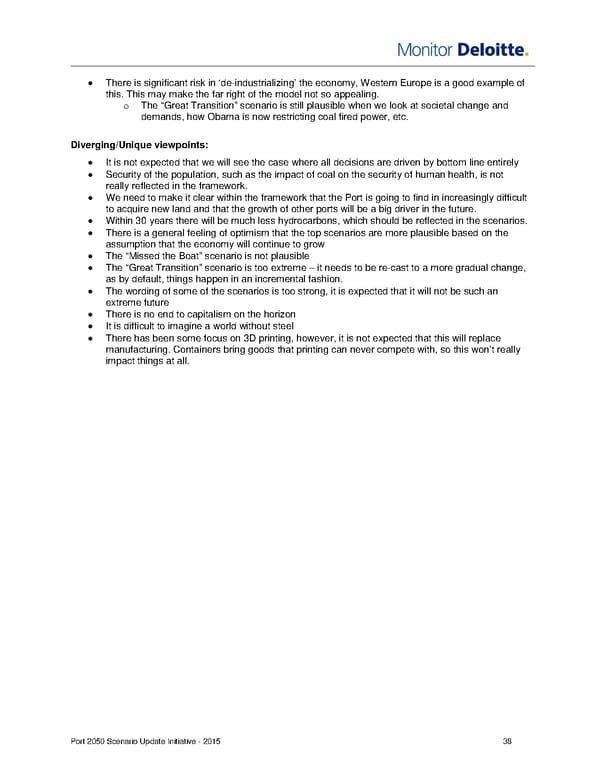• There is significant risk in ‘de-industrializing’ the economy, Western Europe is a good example of this. This may make the far right of the model not so appealing. o The “Great Transition” scenario is still plausible when we look at societal change and demands, how Obama is now restricting coal fired power, etc. Diverging/Unique viewpoints: • It is not expected that we will see the case where all decisions are driven by bottom line entirely • Security of the population, such as the impact of coal on the security of human health, is not really reflected in the framework. • We need to make it clear within the framework that the Port is going to find in increasingly difficult to acquire new land and that the growth of other ports will be a big driver in the future. • Within 30 years there will be much less hydrocarbons, which should be reflected in the scenarios. • There is a general feeling of optimism that the top scenarios are more plausible based on the assumption that the economy will continue to grow • The “Missed the Boat” scenario is not plausible • The “Great Transition” scenario is too extreme – it needs to be re-cast to a more gradual change, as by default, things happen in an incremental fashion. • The wording of some of the scenarios is too strong, it is expected that it will not be such an extreme future • There is no end to capitalism on the horizon • It is difficult to imagine a world without steel • There has been some focus on 3D printing, however, it is not expected that this will replace manufacturing. Containers bring goods that printing can never compete with, so this won’t really impact things at all. Port 2050 Scenario Update Initiative - 2015 38
 Monitor Deloitte - Final Report Page 39 Page 41
Monitor Deloitte - Final Report Page 39 Page 41